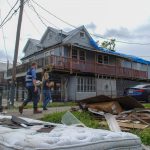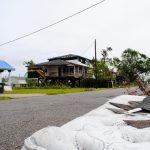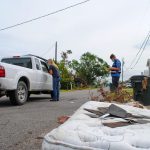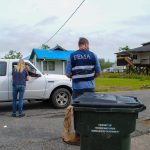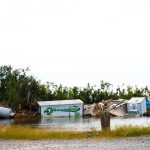
Commissioner Donelon Unveils Hurricane Ida Mediation Program to Resolve Claim Disputes
October 20, 2021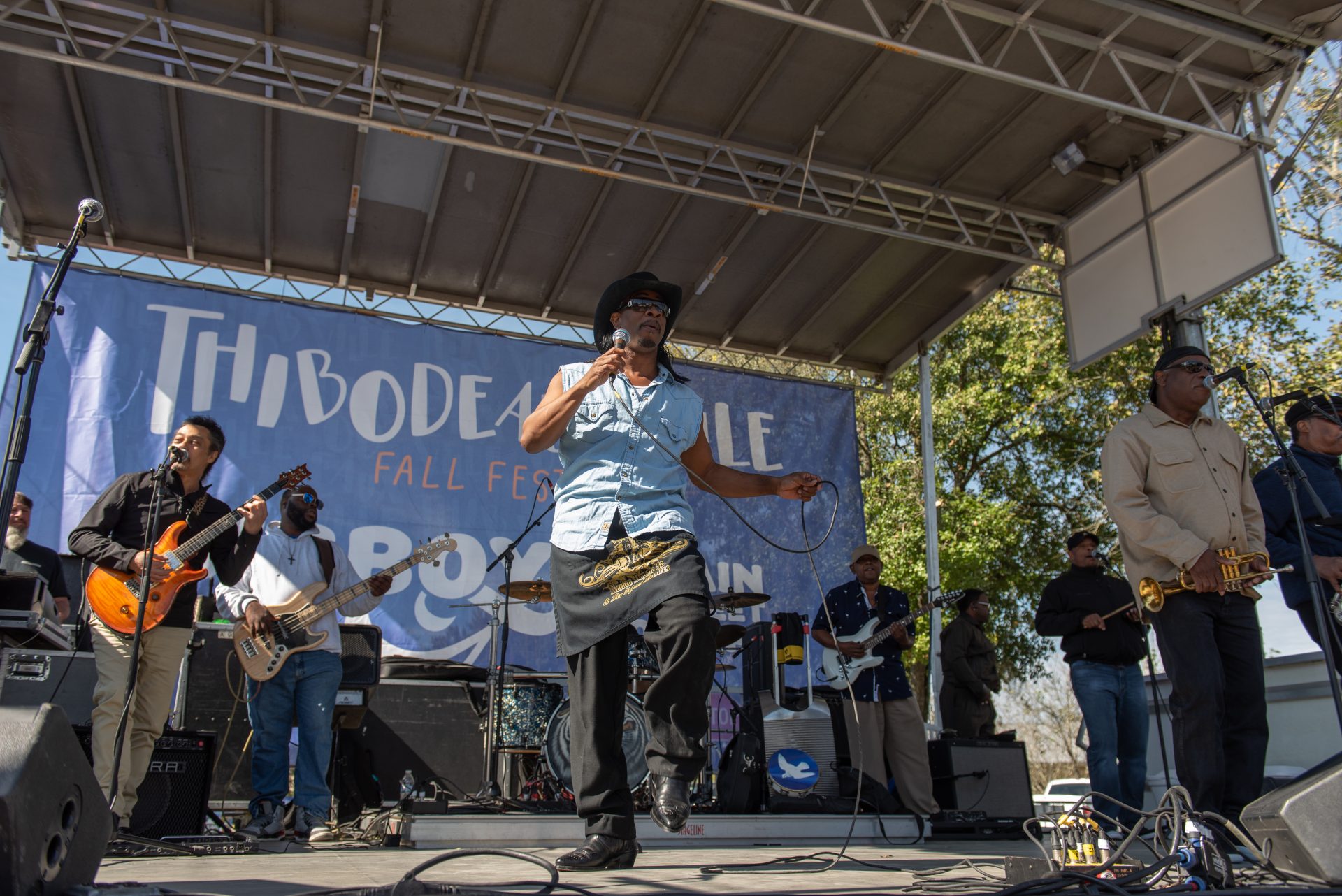
Thibodauxville Fall Festival will return Saturday, November 13
October 20, 2021
FEMA has been in the Chauvin area for the last two days canvassing the neighborhoods to assist residents in the recovery process. The Times was able to tag along to learn more about their process along with some stories of their journey to the south.
The boots on the ground effort is designed to reach residents who physically cannot travel to a FEMA site and those who may still lack internet access to be able to reach FEMA’s website to apply. They are literally going door-to-door and the team consisted of reps from all over the country; New York, Wisconsin, Arkansas, Alabama, Florida, and Tennesee. Since they are the ones going around to meet the residents, they face various questions and learn about people’s individual needs.
Residents are guarded simply because scammers have been trying to take advantage of survivors with fraudulent attempts. How can you tell them apart and what are some red flags? Team lead Jerry Russell told the Times the process of their outreach and how they can be assured they are the real deal.
FEMA employees will always have a FEMA identification card. Inspectors are contracted through FEMA which may be where people get leery of possible FEMA fraud. Roussell said they already have access to the specific cases and the inspectors will have a FEMA identification card despite them not being directly employed by the agency. They will never ask for your full registration number or social security number. They do require some documents to prove homeownership and occupancy such as a phone bill, and if these documents were ruined during the storm, he said it can be easily accessible from utility companies and phone companies.
Going door-to-door means the representatives are getting stories first-hand from Ida survivors and some of them are harrowing, including a resident whose shelter blew away, and all he had was a mattress over him to protect him until someone could come to the rescue. One representative said sometimes people are very happy to see them, and sometimes they aren’t because they have had bad past experiences. Some residents just need someone to vent to. “All of them are fine and we’re providing a service no matter what,” he said,” but you never really know, and I guess that’s why I like it.”
FEMA Rep. Julien is from New York and said it’s important to get residents’ stories. “Being able to hear their story, and to let them know that we’re there for them,” he said, “Even if we may not be able to directly help them, we may be able to see what’s in the state or locally that we can refer them to.”
They also said an issue is people not fully understanding the language that comes with letters. Some residents are getting denial letters and not fully reading the letter. They see the word ‘ineligible,’ immediately think they aren’t getting any help, and throw the letter away. Roussel advised that the letters need to be fully read because most of the time it explains that there are some documents or something else that needs to be done to finish the claim. One issue they notice is if they haven’t filed the insurance claim to FEMA, they will get denied, but all residents have to do is file the claim. Also, another issue is since they work hand-in-hand with SBA, they also require an SBA loan packet to be completed in order to process a claim.
FEMA is set up at The Houma Terrebonne Civic Center located at 346 Civic Center Blvd. for assistance. Visit https://www.fema.gov/disaster/hurricane-ida for more information.
- © Heidi Guidry
- © Heidi Guidry
- © Heidi Guidry
- © Heidi Guidry
- © Heidi Guidry
- © Heidi Guidry
- © Heidi Guidry





